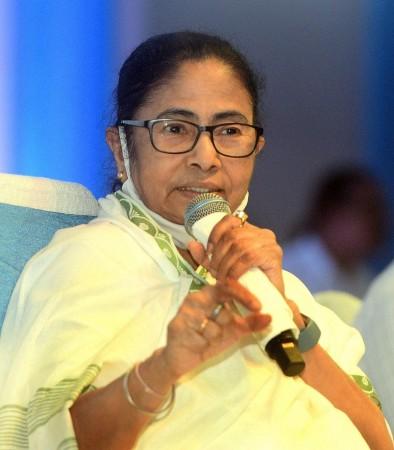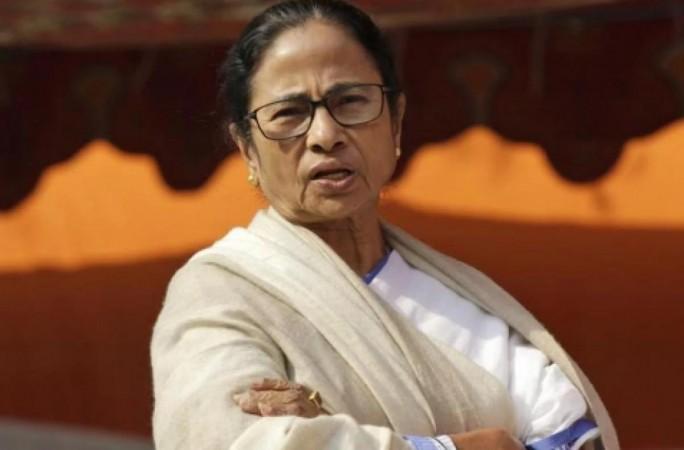Different central agencies probing the different financial scams in West Bengal have witnessed a unique timing pattern in such scams since 2011, when the Mamata Banerjee-led Trinamool Congress came to power in the state ending the 34-year Left Front rule.
The period from 2011 till the end of 2012 was the peak time for the activities of chit fund entities like Saradha, Rose Valley and others. The chit fund bubble burst at the end of 2012 and because of the combined pressure of different central agencies, the Ponzi activities totally dried up by the beginning of 2014.
Besides the Central Bureau of Investigation (CBI) and the Enforcement Directorate (ED), other agencies like the Securities & Exchange Board of India (SEBI) and the Serious Fraud Investigation Office (SFIO), the investigation arm of the Union ministry of corporate affairs, also became active in the matter. The combined pressure of these four agencies forced the Ponzi entities to go underground by closing down several offices and deactivating their agents' network.

Soon after the chit fund entities starting vanishing the agencies started the process of tracking the other financial scams like the teachers' recruitment irregularities, cattle smuggling and coal smuggling.
Trinamool Congress leaders have described this series of enquiries as a ploy of the Union government and the BJP to 'fix' their leaders.
"Why was the Leader of the Opposition in the West Bengal assembly, Suvendu Adhikari, who was named by the CBI in the Narada video scandal when he was with the Trinamool Congress, later spared and not even questioned once in the matter? Why did the CBI, which is also probing the Saradha chit fund, not question Adhikari, even though Saradha chief Sudipta Sen described the Leader of the Opposition as a beneficiary more than once?" questioned senior Trinamool Congress MLA, Tapas Roy.
Adhikari has his own explanation as he claimed that Abhishek Banerjee was the mastermind behind the Narada sting operations to frame a section of the Trinamool Congress leaders including him.
"Since his entry into politics, Abhishek had been considering me as his greatest rival towards his growth path in the Trinamool Congress. As for Sudipta Sen's allegations, it is clear that he is making such allegations because of pressure from the Trinamool Congress and the police," Adhikari said.
Trinamool Congress Rajya Sabha member Santanu Sen questioned the slow pace of enquiry by the central agencies and expressed apprehensions that this slow pace is a ploy to keep the investigation process alive, so that it can be used to harass opposition leaders at opportune moments.
"As regards the teachers' recruitment irregularities, our party's stand is clear. Let the investigation reveal the identities of the real culprits, who get booked irrespective of political affiliation. But the central agencies should complete the investigation process fast and should not drag it for an indefinite period as they have done in the case of chit funds and Narada scams," he said.
Countering that, BJP state spokesman Samik Bhattacharya said the BJP is always at the receiving end over the central agencies probe.
"When the agency accelerates its pace of investigation, Trinamool Congress claims that the agencies are being driven by the BJP. When the pace of investigation slows down for some reason, Congress and CPI(M) claim that it is because of the arrangement between Trinamool Congress and BJP. The investigation agencies have their own pattern of investigation and BJP never interferes in that," he said.
According to retired senior police officer Nazrul Islam, the timing pattern in the evolvement of different scams in the state seems logical.

"Between 2011 and 2014, it was the training period to learn the nitty-gritty of corruption and hence during that period the commissions and protection money from the chit fund entities were the sole sources of political funding in the state and needless to say the ruling party was the principal beneficiary on this count.
"Now naturally as the source of political funds from the Ponzi entities dried out, the leaders had to search for alternative sources for flow of funds. Thereafter evolved scams like teachers' recruitment irregularities, cattle smuggling and coal smuggling, one after the other during the period between 2014 and 2018.
"Now, in this time bracket, 2014 marked the beginning of the Ponzi menace and the beginning of other scams, while 2018 was the year when such scams came to the notice of the media and central agencies, who became active," Islam pointed out.
However, he too, expressed displeasure over the slow pace of investigation by the central agencies. "Often slow pace of investigation prompts people to raise questions about the seriousness of the investigation and credibility of the investigating agency," he said.
According to senior counsel of the Calcutta High Court, Kaushik Gupta, the pattern of crime always changes with the change in times and change in the ground-level situation.
"There are two options for an individual indulging in fraudulent activities in case the area of irregularities that he or she is operating comes under the scanner of the law enforcement agencies. Either he or she can totally move away from the path of irregularities or can adopt an alternative area of irregularity which is yet to come under the scanner.
"In West Bengal exactly that has happened. The area of irregularity has changed or rather has become diversified over the years. But ultimately irregular activities are bound to leave legal loopholes and traces behind, which ultimately throw light on corruption. That has happened in the case of the teachers' recruitment irregularities, cattle smuggling and coal smuggling," he said.
He added that in case of the teacher's recruitment scam the loopholes were so blatant that some deprived eligible candidates could identify them, move the court and helped the judicial system to reveal the bigger conspiracy.
As regards the WBSSC scam, he said, the order for central agency probes was first given by a single-judge bench of the Calcutta High Court and subsequently upheld by a division bench.
"So logically and the legal angle, the contention of politically motivated CBI enquiry really does not stand at least in this case. However, as regards the allegation that central agency probes are often selectively used against opposition leaders, I am to an extent in agreement with the Trinamool Congress. At least for the sake of neutrality Suvendu Adhikari should have been questioned on the Narada video scam as he was named in the original FIR filed by the CBI," Gupta said.
According to political analyst Rajagopal Dhar Chakraborty although complaints of corrupt practices erupted from time to time during the 34-year Left Front rule, but its frequency was much less than what it has been during the last 11 years of the Trinamool Congress regime.
"I agree that the pace of investigation that the central agencies have shown in case of the WBSSC scam is much faster than what it had been in other cases especially the Narada and chit fund scams. But you must not forget that the probe in the WBSSC scam is a court-monitored investigation, where there is always judicial pressure on the probe officials to show quick results," he added.
(With inputs from IANS)














